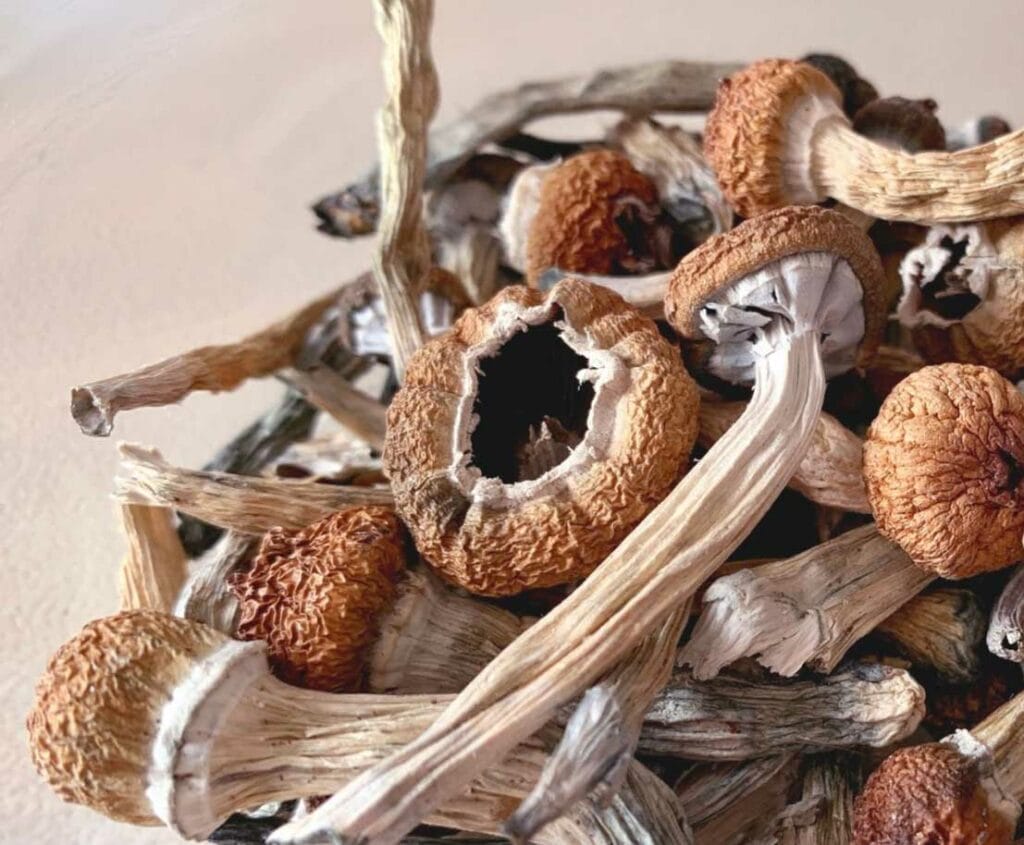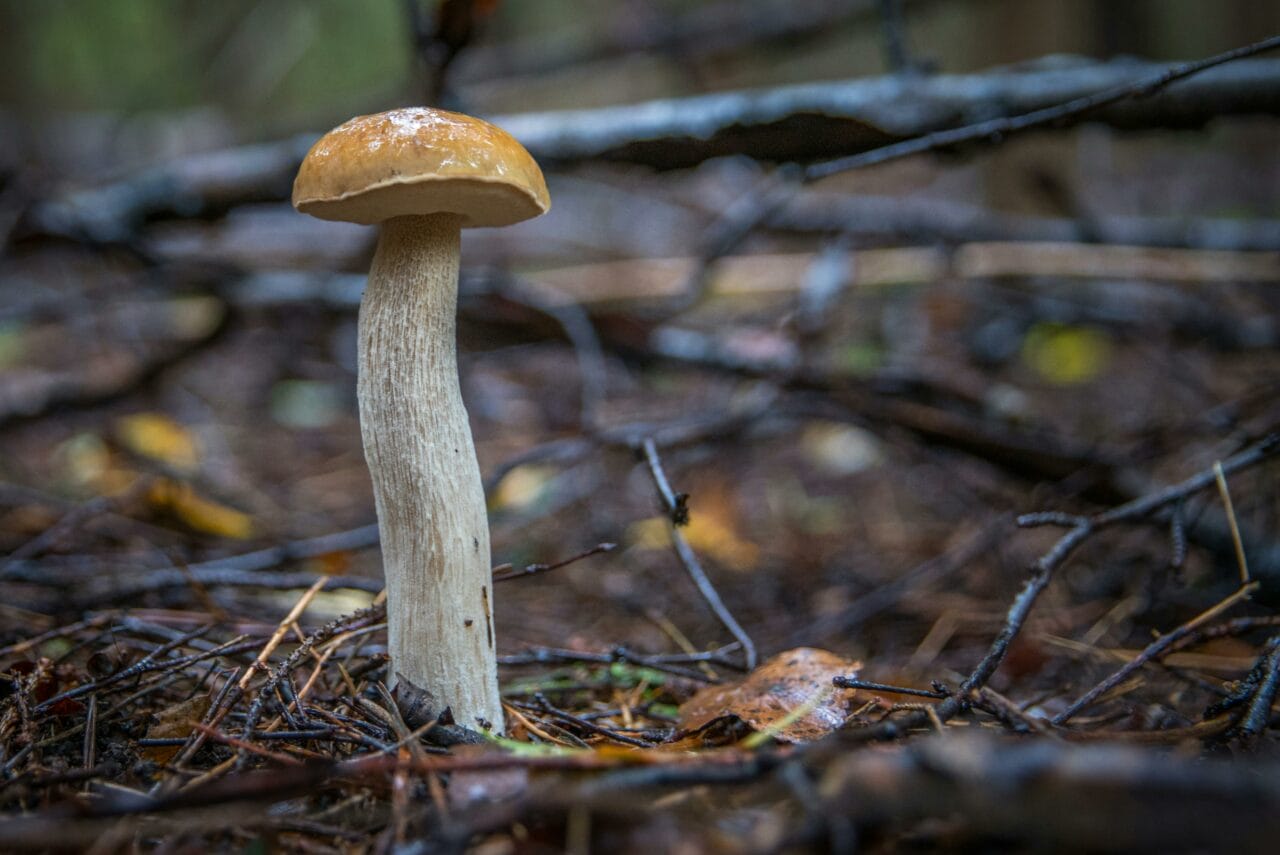As research continues into the impact of psilocybin on the human brain, scientists are regularly uncovering remarkable findings. A study conducted by Washington University in 2023 demonstrated that psilocybin can reduce activity in the brain area responsible for memory and perception for over a week. This extended disruption could be connected to the substance’s ability to uplift moods.
This groundbreaking revelation paves a new direction for patients with mental health conditions, introducing a broader spectrum of therapeutic options. The increased flexibility of the brain, coupled with mood-enhancing effects, might offer longer-lasting relief than traditional medications. Furthermore, it is economically viable to purchase it through shrooms online.
[toc]
Key Takeaways:
- Desynchronization acts as a reset function, enabling those with depression to establish healthier and more adaptable neural connections.
- It aids in treating conditions such as depression, anxiety, PTSD, and addiction by fostering neuroplasticity and modifying neural connections.
- A single dose has been reported by depression patients to improve positive thinking, mood, and behaviour.
Deciphering Magic Mushrooms
These mushrooms are recognized for their psychoactive substances, primarily psilocybin and psilocin, which can trigger altered states of consciousness. These changes can lead to visual and auditory hallucinations, shifts in perception, and profound emotional experiences.
For thousands of years, they have been utilized in various cultural and spiritual practices and are commonly known as “shrooms,” “mushies,” or “hongos.”
The Psychedelic Compound
The most intriguing aspect of these mushrooms is their psychedelic compound. Once consumed, it converts into psilocin, which interacts with serotonin receptors (5-HT2A receptor). This interaction triggers changes in brain connectivity and perception, leading to the hallucinogenic effect and potential therapeutic advantages.
It disrupts standard connectivity, leading to enhanced communication between previously separate brain regions, fostering the creation of new enhancing perspectives and improving mental flexibility. Such a disruption, although inducing a temporary alteration in consciousness, fosters profound insights that could prove therapeutic for conditions like depression, PTSD, and anxiety.
This compound has undergone extensive research in numerous clinical trials and has even received endorsement from Health Canada as a revolutionary medication.
Recent Research on Brain Activity During and Post Ingestion
The Washington University School of Medicine embarked on a research study to investigate the immediate and lasting neurobiological and psychological effects of psilocybin. The study aimed to understand the influence of these substances on synaptic connections and the endurance of these effects.
Methodology
Healthy young adult subjects were given psilocybin and methylphenidate on separate days and underwent routine MRI scans (approximately 18 times) before, during, in-between, and after each dosage.
A functional MRI (fMRI) was employed to monitor synaptic connections and activity at various stages. This allowed for a thorough assessment of immediate and persistent effects on the brain network.
While in the scanner, subjects participated in a simple auditory-visual matching task. They executed this task accurately during the drug sessions.
Key Findings
- Immediate Alterations: A significant disruption in connectivity across cortical and subcortical networks was seen, with changes over three times greater than those observed with methylphenidate.
- Desynchronization: A considerable reduction in network synchronicity, particularly in the “default mode network,” was noted. This network, encompassing interconnected regions such as the thalamus, basal ganglia, cerebellum, and hippocampus, is typically more active during self-reflection and mind-wandering than when concentrating on specific tasks.
- Effect on Task Performance: Despite the observed alterations in functional connectivity, participants’ responses during the auditory-visual matching task remained consistent under the active substance. This implies that the changes in functional connectivity are unlikely due to modified neurovascular coupling.
- Prolonged Effects: A lasting decrease in connectivity between the anterior hippocampus and DMN was noted for several weeks, but it normalized after 6 months.
- Methylphenidate produces immediate changes that are less significant and less frequently observed in brain connectivity.
Views from Experts
Dr. Joshua Siegel, a psychiatrist at Washington University School of Medicine in St. Louis and the primary author of the study, theorizes that psilocybin promotes a more adaptable form of brain connectivity. This enhanced connectivity could potentially assist in treating depression. By augmenting the adaptability of the brain, enduring cognitive transformations could be enabled. This desynchronization might function as a reset mechanism for individuals suffering from mood disorders, fostering healthier and more dynamic connectivity.
Effects of Psilocybin on the Brain
This active component distorts a person’s perception of time and space, and modifies their sense of connection to their environment. These subjective experiences typically dissipate quickly.
It impacts cells that react to serotonin, a vital neurotransmitter. Temporarily activating receptors in high-density areas like the medial frontal lobe triggers enduring impacts. This activation interrupts established pathways and fosters the formation of new connections.
Desynchronization decreased when participants performed a simple word-picture matching task, as the default mode network was inactive during this task. This might explain why reducing external stimuli—such as the use of eyeshades—can amplify the psychedelic experience.
Long-lasting Effects on Brain Disruption
While the immediate effects fade away once the drug wears off, the aforementioned study found that disruptions in connectivity between the DMN and the anterior hippocampus—a region associated with memory and emotion—can continue for several weeks.
This prolonged alteration could promote brain plasticity, potentially aiding in long-term changes in cognitive and emotional processing. These lasting experiences could enhance the therapeutic potential of the drug.
Dr. Petros Petridis, a psychiatrist at NYU Langone Center for Psychedelic Medicine, opines, “Psilocybin could present an opportunity for change, which a therapist can then guide the patient through.”
Possible Benefits for Mental Health Disorders
The effect could also reach emotional processing, with alterations in the activity of brain regions involved in emotion regulation. For example, it can affect the amygdala, a region crucial for processing emotions, possibly resulting in changes in emotional reactions and mood.
These changes in emotional responses could potentially address frequent mental health issues faced by Canadians.
- Depression: After two months of treatment sessions and a 14-month follow-up with moderate to high doses, there can be an improvement in positive attitudes, mood, and behaviour.
- Anxiety Disorders: This can help ease anxiety, notably existential or end-of-life anxiety, by altering one’s perception of self and reality, which can lead to a better understanding and acceptance of personal fears.
- Post-Traumatic Stress Disorder (PTSD): This aids in the quick and enduring reduction of emotional responses to traumatic memories by promoting fear extinction. It may also prompt hippocampal neuroplasticity, enhancing the brain’s ability to form new connections and adapt.
- Obsessive-Compulsive Disorder (OCD): By disrupting rigid neural pathways and promoting cognitive flexibility, it can potentially reduce obsessive thoughts and compulsive behaviours.
- Substance Use Disorders: This can possibly help fight addiction by providing deep insights into the nature of addiction and promoting a shift in perspective.
Selecting Magic Mushrooms to Help Mitigate Depression Symptoms
Looking for mushroom products to mitigate depression? This range of Psilocybe cubensis, known for its use in spiritual and religious rituals, offers dependable strains.
| Dried Magic Mushrooms | Description | Effects |
| Blue Meanies | Characterized by a 4 cm wide smooth surface and is marked by blue bruising, giving it its name. | Experience of joy, hallucinations, happiness, and intense laughter |
| Golden Teacher | Famous for its spiritual or shamanistic effects, it’s a staple in the Psilocybe cubensis world. | Vivid colours, intense emotions, visual distortion, and a feeling of lightness or giddiness |
| Albino Zilla | Sturdy and thick, entirely spectral white with some dark bruising. | Ignites creativity, body buzz, sociability, euphoria, and positivity |
| Atlantic Treasure Coast | Naturally found on the Southern Florida Gulf Coast, with pale caramel-coloured caps. | Enhances mood, induces pleasure |
| Brazilian Psilocybe Cubensis | This mushroom, native to Brazil and some South American countries, is an ideal selection for beginners. | It can induce a sense of euphoria, increased alertness, creativity, and comfort. |
In addition to the dried psilocybin mushrooms, magic mushrooms can be consumed in the form of edible shroom products, shroom tea, and more. Check out these readily available products for purchase:
- Wonder – Birthday Cake Chocolate Bar
- Wonder – 3000mg Cherry Cola Gummies
- Bright Future – 3000mg Dark Chocolate & Sea Salt
Treat Your Anxiety, Depression, and PTSD with Secure Online Shrooms
Recent research has broadened our understanding of how the active compound in Psilocybe cubensis affects the brain. The disruption it causes can lead to a temporary alteration in consciousness. This psychedelic experience can enable profound insights and offer benefits for conditions such as depression, PTSD, and anxiety.
Are you searching for a trusted source to buy shrooms online in Canada? Mushroom Canada is committed to improving mental health by providing high-quality magic mushrooms as a potential therapeutic aid for anxiety, depression, and PTSD. We strive to unlock the unique benefits of these fungi with our specially curated range of magic mushrooms available online.
Frequently Asked Questions
Does combining Psilocybe with antidepressants enhance the effects?
At present, there’s insufficient evidence to confirm a harmful interaction between antidepressants (whether SSRIs or others) and Psilocybes. The active compound also doesn’t increase the risk of serotonin syndrome when consumed with a single antidepressant. Most recent clinical studies involving shrooms ask participants to slowly decrease their SSRIs or exclude them from the study.
Can one microdose Psilocybe shrooms?
If you’d rather not experience the full psychedelic effects of dried shrooms, microdosing is an option.
- Gather and Process: Obtain the mushrooms and pulverize them into a fine powder.
- Determine Dosage: Approximately measure 0.1 to 0.3 grams (100-300 mg) of dried mushrooms.
- Set a Dosing Schedule: Create a consistent routine, such as taking the dose every three days or following a pattern of two days on, one day off.
- Calculate and Consume: Use a precision scale for accurate measurements, and consider taking the dose on an empty stomach to enhance absorption.
- Monitor and Adjust: Keep a log of your experiences and adjust the dosage or regimen based on your personal observations.
Is it safe to buy magic mushrooms online for therapeutic purposes?
Online purchasing is generally safer than buying from questionable sources.
- Ensure you have detailed information about the products, including their origins and quality. Reliable sellers offer lab test results or other forms of assurance to verify the authenticity and purity of their psychedelic mushrooms.
- Your payment and personal details are protected by website encryption that secures your private and financial information.
- To avoid ingesting harmful varieties, purchase only from reliable sources. Verify customer reviews and contact the dispensary to ascertain their trustworthiness.
Articles That Might Pique Your Interest:





